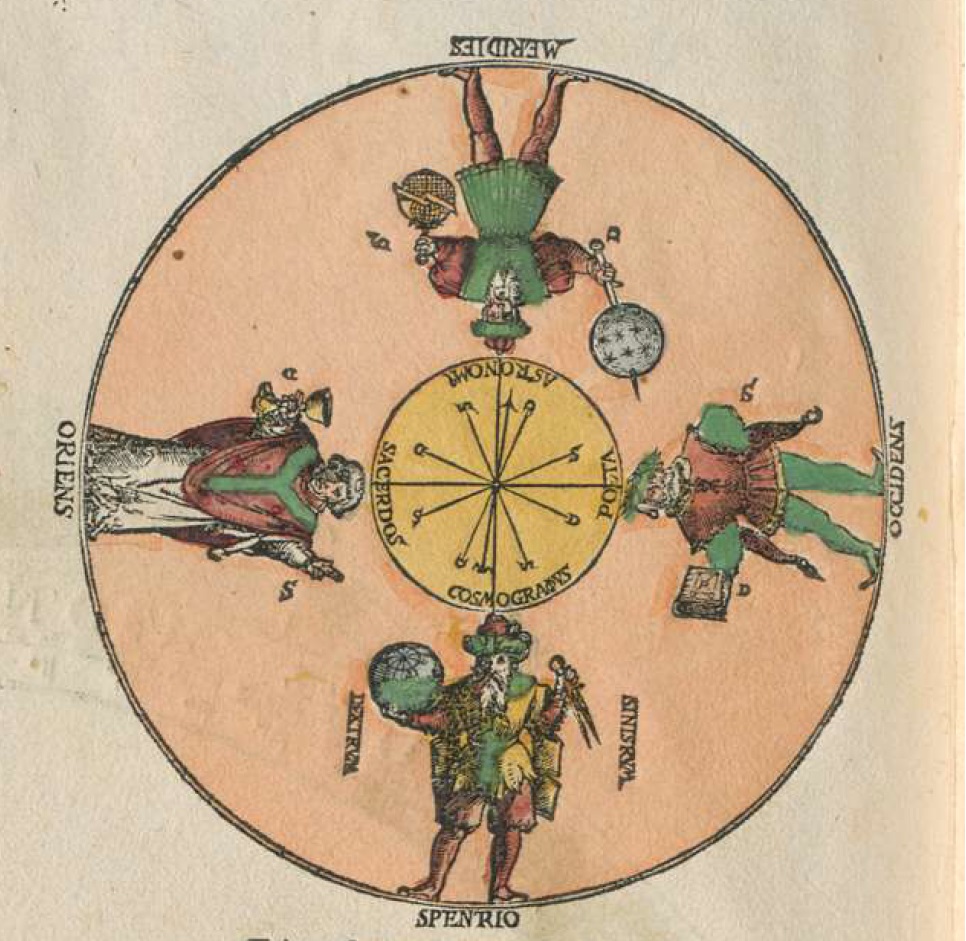Cosmopoetic Form-Knowledge:
Astronomy, Poetics, and Ideology in England, 1500-1800

Petrus Apian, Astronomicum Caesareum, Ingolstadt 1540 (Bayerische Staatsbibliothek München, Rar. 821 a, fol. F.iii.v)
About
In this project, we explore how early modern astronomical knowledge is produced and communicated, and particularly the importance of form in this process.
Our key assumption is that some of these forms – such as the (Neo-)Platonic harmony of the cosmos, cosmic hierarchy, or the Great Chain of Being – originate, at least in part, from the social and/or poetical realm. As they are applied to astronomy, they bestow authority on this domain of knowledge, and their own authority is reaffirmed by the noble subject of astronomy. Thus, the figure from Peter Apian's Astronomicum Caesareum, left, illustrates how the astronomer, the poet, the cosmographer, and the priest view, understand, and describe the world in different, but related ways.
In view of this interrelation between poetry, astronomy, and the social realm through the forms they partake of and utilise, we study two distinct bodies of texts: works on poetics and rhetoric, and popular astronomical 'textbooks' of the period.
PLEASE NOTE
This website is work in progress and subject to changes and additions.

